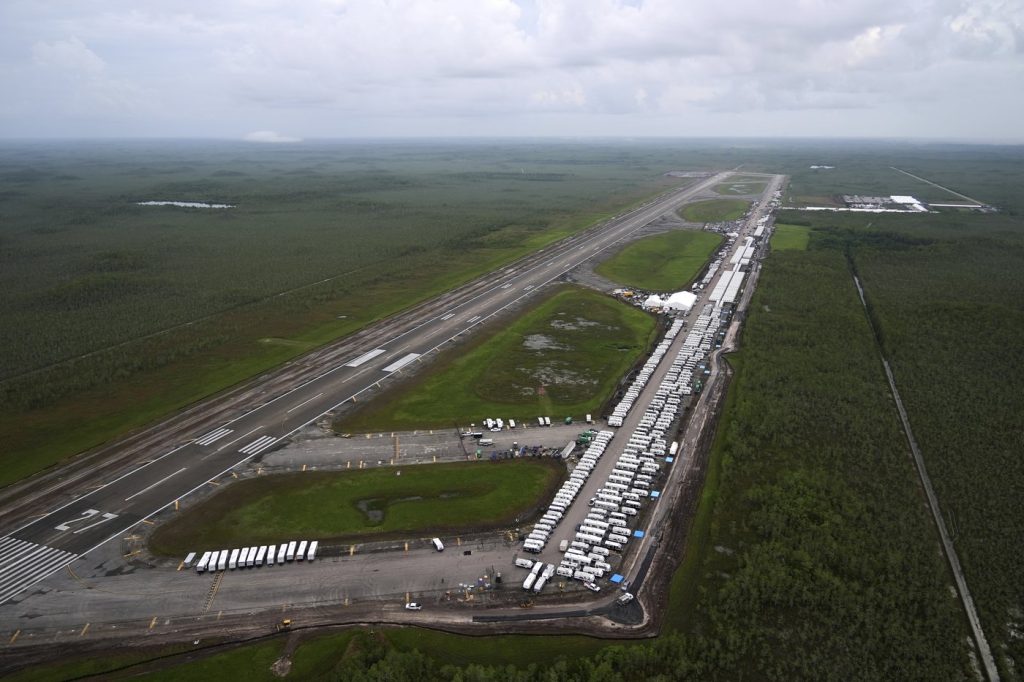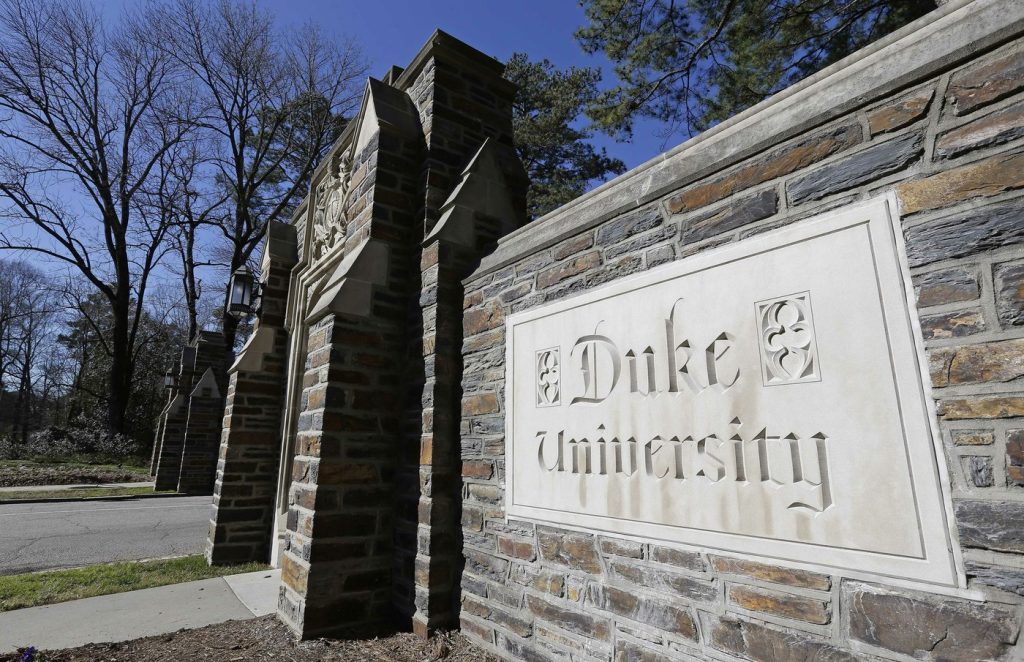MIAMI (AP) — A legal challenge to the rapidly constructed immigration detention center in the Florida Everglades, aptly named "Alligator Alcatraz," is embroiled in controversy as government attorneys argued that the lawsuit was filed in the incorrect venue. During the initial hearing on the matter in federal court in Miami, attorneys claimed that since the detention center is situated in Collier County, which falls under Florida’s middle district, the case is misrouted.
Jesse Panuccio, representing the state of Florida, emphasized that all related activities are occurring outside the southern district, specifically in Collier County, Tallahassee, or even Washington, D.C. He pointed out that the southern district should not host this lawsuit, as its jurisdiction does not encompass the region where the detention facility is located.
On the opposing side, attorney Paul Schwiep, representing Friends of the Everglades, acknowledged that the lawsuit could have been filed in several districts including the middle district, but argued that the southern district is nonetheless appropriate due to the implications the facility has for the environment, cities, and drinking water in Miami-Dade County. He brought attention to the state's sudden concern about the venue, which arose only after U.S. District Judge Kathleen Williams, a judge appointed by President George W. Bush, was assigned to the case following another judge’s recusal.
Doubts have been cast over Panuccio's insistence that there was no “judge-shopping,” especially as Florida Governor Ron DeSantis and other Republican officials have criticized Judge Williams as an “activist judge.” The venue decision is particularly consequential, as it may also influence a separate lawsuit by civil rights advocates, who assert that detainees at the facility have been denied access to legal counsel and immigration courts.
The federal and state government defendants in this civil rights case argue that it too was improperly filed in the southern district. In response to a judge’s request, civil rights groups recently submitted a revised class-action complaint claiming that the detainees' constitutional rights have been compromised. They highlight the lack of policies or procedures for detainees to receive legal counsel, pointing out that attorneys have struggled to establish communication with clients at the facility.
Environmental groups filed their original lawsuit last month against federal and state officials in Florida’s southern district, alleging that the construction of "Alligator Alcatraz" violated environmental laws. The facility, built on an airstrip in the heart of the Florida Everglades, has raised red flags among activists concerned about its potential ecological impacts. A second hearing regarding the environmental groups' request for a temporary injunction is scheduled, following the initial venue-related hearing.
Since the lawsuit's filing, the first group of detainees has already arrived at the facility, which has a capacity of 3,000 individuals. Florida officials opened the center, although critics have noted ambiguity over whether federal or state authorities are primarily responsible for operations. The facility’s nickname draws a parallel to the notorious island prison in San Francisco, emphasizing its remote nature, with a draft emergency evacuation plan labeling it as the South Florida Detention Facility. The plan indicates that the facility could remain operational for over a year.
Recently, deportation flights from "Alligator Alcatraz" began, a development met with considerable scrutiny. In a request aimed at clarifying the operational relationships between state and federal agencies, Judge Williams mandated the production of any agreements between the U.S. Department of Homeland Security and the Florida Department of Emergency Management.
Critics of the detention facility have condemned it as a cruel and inhumane establishment that poses risks to the surrounding delicate wetlands. In contrast, Governor Ron DeSantis and other Republican state officials defend the center as part of Florida’s vigorous response to support former President Donald Trump's crackdown on illegal immigration.












